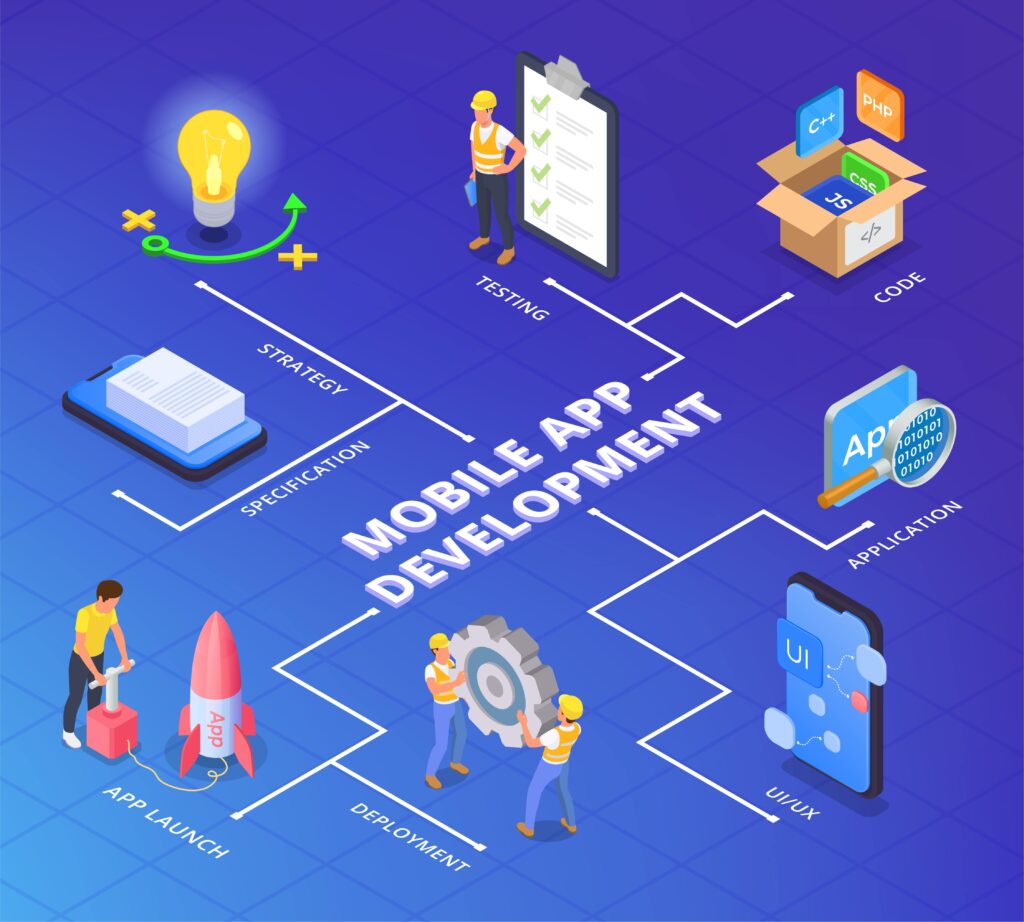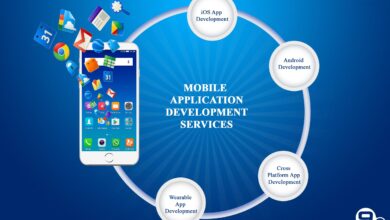Mobile application development, or apps, is the beating core of mobile devices in the digital age. But have you ever given thought to the development process behind such programs? You have entered the fascinating field of creating apps for mobile devices.

Evolution of Mobile Applications
-
The Rise of Smartphones
The mobile phone was a convenient instrument for making calls and transmitting text messages at the beginning of the twenty-first century. The rise of smartphones, predominantly due to technological advancements, entirely transformed the concept of mobile applications. Can you conceive of a life without using your favorite apps?
-
The Revolution of App Stores
Apple’s App Store launched in 2008, and Google’s Play Store for Android followed in 2012. These two app stores enabled many applications to permeate our everyday lives. App ecosystems grew dramatically due to these digital distribution channels, making it more straightforward for developers to reach end users.
Types of Mobile Applications
Discover the world of mobile apps! Choose from web-based, hybrid, or native options with special perks and drawbacks.
Native Apps
Mobile apps are made for specific operating systems, like Android or iOS. Evernote’s Android app uses Java, while its iOS app uses Objective-C or Swift.

-
Benefits and Drawbacks of Native Apps
Native apps provide the best performance and fully exploit the device’s capabilities. However, each platform requires separate coding, increasing development costs and time. It’s like cooking a particular dish; the best ingredients give the best taste, but it takes time and effort.
Web-Based Apps
Mobile devices can access web-based applications through internet browsers developed using technologies like HTML5, CSS, and JavaScript.
-
Benefits and Drawbacks of Web-Based Apps
These budget-friendly applications require minimal upkeep since they utilize a unified code base for all platforms. However, their functionality is limited compared to native apps. It’s akin to using a universal remote; it’s convenient but may not provide the full functionality of the original remotes.
Hybrid Apps
As the name suggests, hybrid apps mix native and web-based apps. They are developed using web technologies and wrapped in a native container.
-
Advantages and Disadvantages of Hybrid Apps
Hybrid apps can use device features, just like native apps, and are easier to develop and maintain. However, their performance might be slightly compromised. They are like a multi-cuisine restaurant, offering a variety of dishes, but the taste may need to match up to a speciality restaurant.
Mobile Application Development Process
The development process is a crucial aspect of creating an effective app.

-
Idea Conception and Research
Every great app starts with a brilliant idea. The development begins with identifying a unique concept, followed by thorough market research.
-
App Design and Development
The next step is to design an intuitive user interface and develop the app using appropriate technologies. It’s akin to building a house – the idea is the blueprint, the design is the aesthetic appeal, and the development is the actual construction.
The Impact of Mobile Application Development
-
On Businesses
Mobile apps open new avenues for customer engagement and revenue generation for businesses. They are transforming businesses’ operations, much like how computers revolutionized workplaces in the late 20th century.
-
On Users
For users, apps have become integral to daily life, from banking to shopping to entertainment. They’ve made life easier, haven’t they?
The Future of Mobile Application Development
The future holds exciting possibilities for mobile application development, with emerging technologies like AI, VR, and IoT expected to shape the landscape further.
Conclusion
Mobile application development is a dynamic field, continually evolving with technological advancements. Understanding its complexities can help you appreciate the effort that goes into creating the indispensable applications that have become a part of our daily lives. As the saying goes, every excellent app has a compelling backstory.
FAQs for Mobile Application Development
What are the types of mobile applications?
The three main types are native, web-based, and hybrid apps.
How are mobile applications developed?
They are developed using various programming languages, depending on the type of app and the target platform.
What impacts do mobile apps have on businesses and users?
For businesses, they provide new avenues for customer engagement and revenue generation. For users, they have made various aspects of life easier and more convenient.
What is the future of mobile application development?
Emerging technologies like AI, VR, and IoT are expected to further influence the future of mobile app development.




